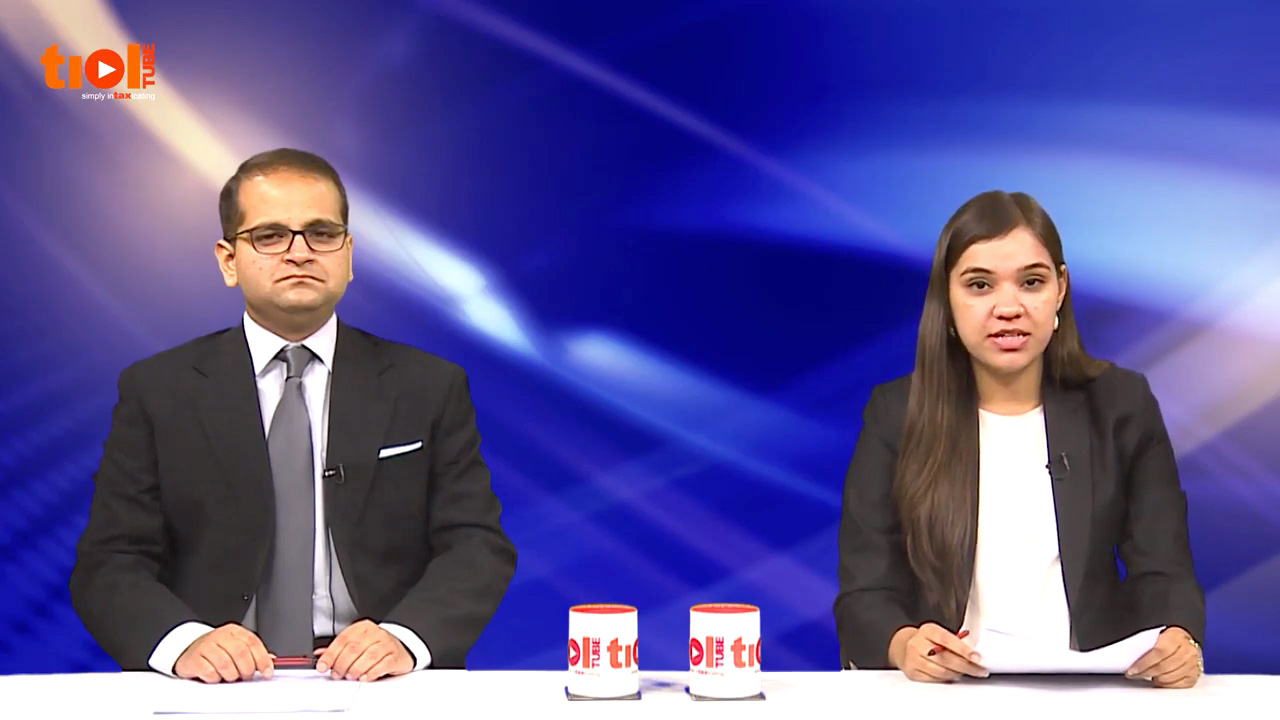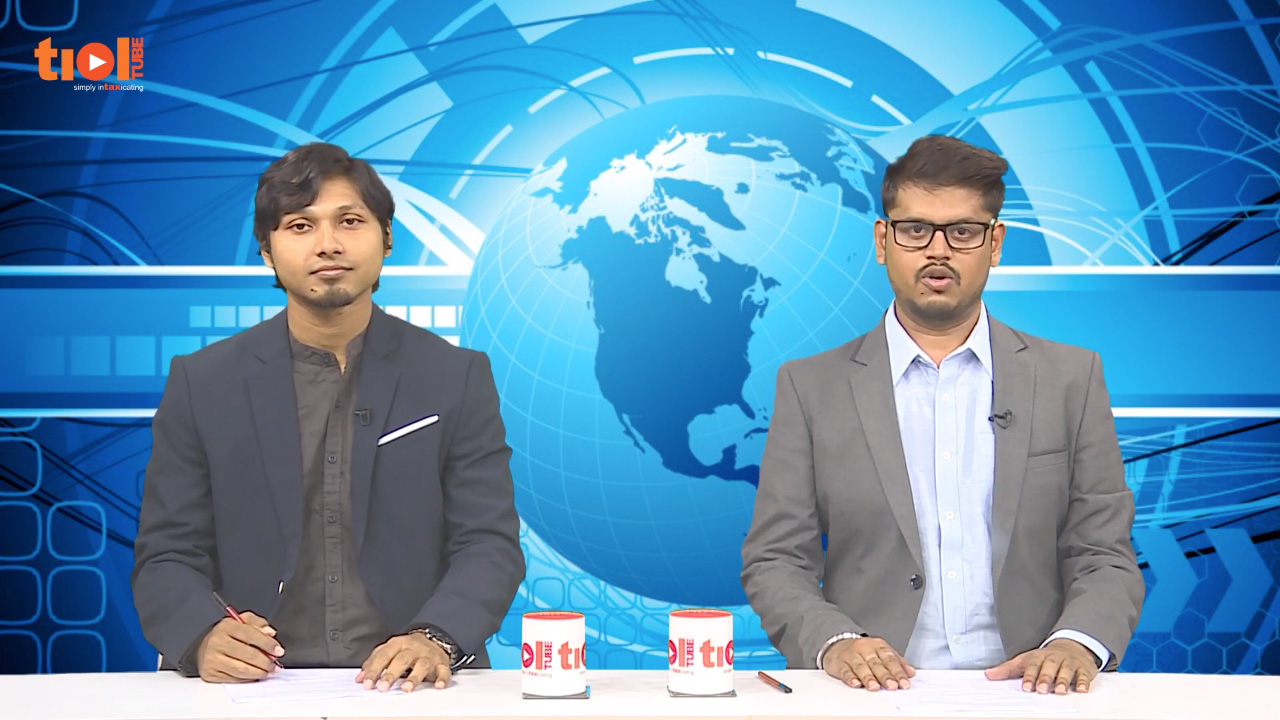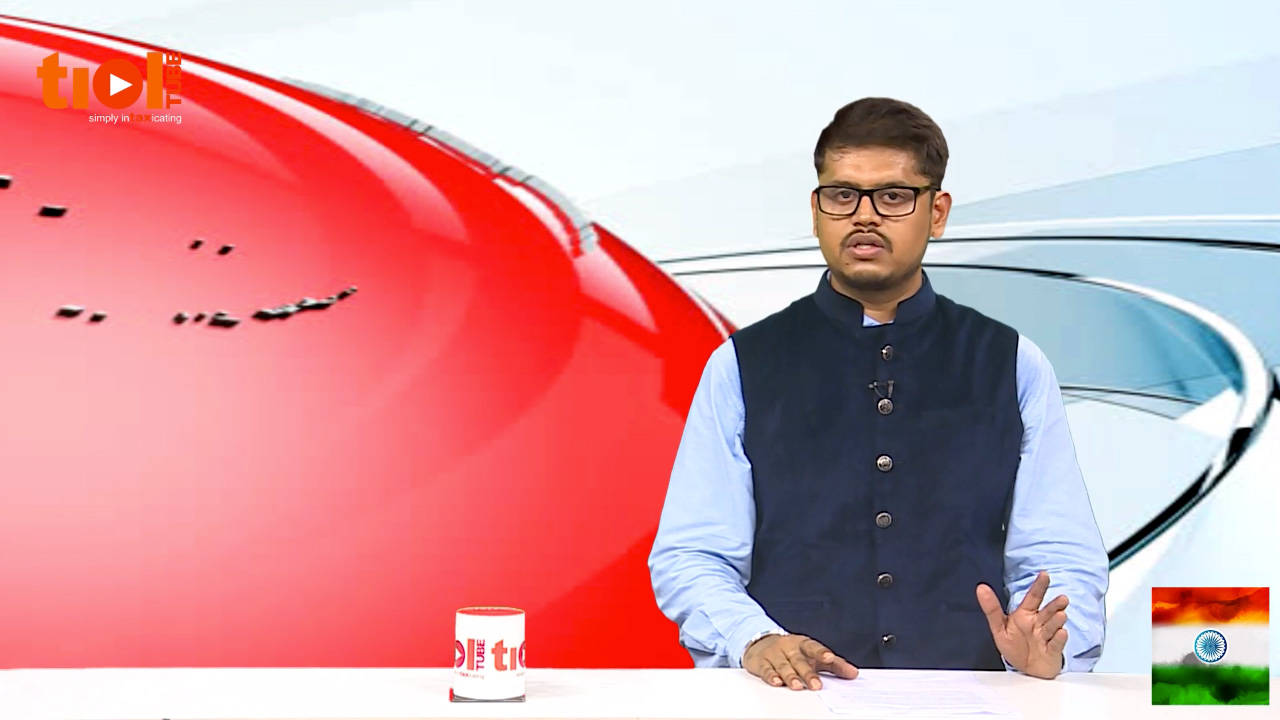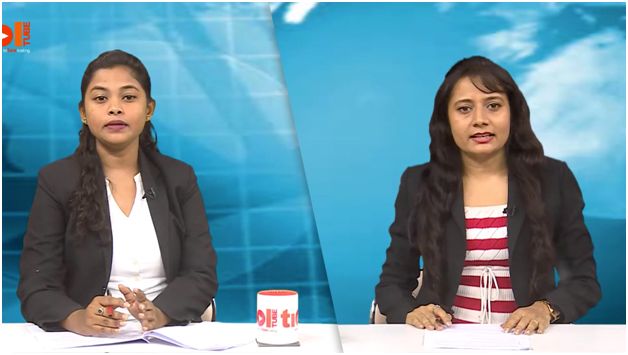|
SERVICE TAX
2019-TIOL-2475-CESTAT-MAD
M Gopal Vs CCE
ST - "Management and Repair Services" - SCN issued to the appellant for failure to discharge ST - demand of ST of Rs.12.54 lakhs confirmed along with interest, penalties imposed under sections 76, 77 and 78 of the Finance Act, 1994 - on appeal, the Commissioner (Appeals) reduced the demand to Rs.5.01 lakhs, set aside the penalties imposed under sections 76 and 77 and reduced the penalty imposed under section 78 in accordance with the tax demand confirmed - appellant before CESTAT - revenue also before CESTAT aggrieved by the reduction of demand of ST as well as setting aside of penalty.
HELD: Main grievance of the appellant is that they have not been given the benefit of notification 12/2003-ST which allows deduction/exemption of value of the cost and materials sold by the service provider while rendering services -in the contract, the rate has been fixed including the cost of materials/labour charges and service charges - on such score, the appellant is definitely eligible for exemption of the value of the materials sold to the service recipient/client while undertaking the maintenance or repair service - the decision in the case of Safety Retreading Co. (P) Ltd. [ 2017-TIOL-28-SC-ST ] will support the appellant on this issue - therefore, matter requires to be remanded for verification and extending the benefit of notification 12/2003-ST -the department has filed appeal contending that the Commissioner (Appeals) has wrongly given the benefit of cum-tax - even in the SCN, it is stated that the appellant has not collected ST - therefore, it is clear that the appellant has been raising invoices without charging ST - Commissioner (Appeals) has rightly allowed the benefit of cum-tax to the appellant - on this score, no merits found in the appeal filed by the department - Commissioner (Appeals) has rightly set aside the penalties observing that appellant has given reasonable explanation for failure to pay ST and this conclusion of the Commissioner (Appeals) does not require any interference- appeal of the appellant is partly allowed and partly remanded to the adjudicating authority for reworking the demand after extending the appellant the benefit of notification 12/2003 on production of documentary proof by the appellant - appeal filed by the department is dismissed : CESTAT [para5, 6, 7, 8]
- Appeal of appellant partly allowed/partly remanded / Appeal of Revenue dismissed: CHENNAI CESTAT
2019-TIOL-2474-CESTAT-HYD
Krison Sai Tool Crafts Vs CCE, C & ST
ST - Assessee was the manufacturer of threaded die rolls and cleared the same by availing benefit of small scale exemption and received the worned out dies from their purchasers and undertook various processes and convert it as usable threaded die rolls and cleared the same to their customers for which they receive consideration towards labour charges - The Revenue officers are of the view that the process that is undertaken by assessee on worn out threaded die rolls is not a manufacturing activity - Hence, the amounts collected as labour charges by assessee are taxable under the category of maintenance and repair services - The contention of assessee that the activity/process undertaken by them would amount to manufacture is totally misplaced - The activity is undertaken by them on various worned out die rolls received back from their customers which would mean that the process undertaken by them would not result in a new and distinct product in order to state that it is a manufacturing activity - The activity undertaken by assessee cannot be considered as a manufacturing activity and the Finance Act will apply and assessee is required to discharge the service tax liability under maintenance or repair services - Assessee was correct in emphasising that appeals are hit by limitation - The assessee have kept the department informed about their activity of reprocessing or reconditioning of said threaded die rolls - Hence, the demand within the period of limitation from the date of SCN in these two appeals are only sustainable and the demands beyond the period of limitation are unsustainable - Since the demand beyond the period of limitation are set aside, consequently the interest and the penalties imposed are also set aside: CESTAT
- Appeals disposed of: HYDERABAD CESTAT
2019-TIOL-2473-CESTAT-BANG
BSNL Vs CCT & CE
ST - The assessee is a Public Sector Undertaking engaged in rendering of telecommunication service and are availing CENVAT credit of duty paid on various inputs and capital goods and also Service Tax paid on various input services - During period from October 2005 to September 2006, assessee procured various capital goods and availed CENVAT credit of duty paid on said capital goods - The allegation against assessee is that they have availed 100% CENVAT credit on capital goods instead of only 50% of the credit - Issue is no more res integra and has been settled by jurisdictional High Court of Karnataka in case of Bill Forge 2011-TIOL-799-HC-KAR-CX wherein the High Court has held that the assessee is not liable to pay interest if he has not utilized the CENVAT credit and there was sufficient CENVAT credit in books of assessee during the relevant time - Further, the Tribunal in case of J.K. Tyres and Industries Ltd. 2016-TIOL-1781-CESTAT-BANG-LB has also held that interest is not payable on mere availment of credit - It has also been consistently held by Tribunal relying upon the decision in case of Bill Forge that interest and penalty is not imposable when the credit is reversed before utilization - By following the ratio of said decisions, the impugned order is not sustainable in law: CESTAT
- Appeal allowed: BANGALORE CESTAT
CENTRAL EXCISE
2019-TIOL-2472-CESTAT-AHM
Dorf Ketal Chemicals India Pvt Ltd Vs CCE & ST
CX - The issue involved is that whether the assessee being 100% EOU is entitled to clear Spent Salt and Spent Acid by availing exemption Notfn 23/2003-CE - The assessee vehemently submitted that they are a status holder therefore, there is no need to take permission for removal of goods namely Spent Salt and Spent Acid, therefore, the demand only on the ground that permission was not taken from Development Commissioner cannot be confirmed - The Commissioner (A) recorded in his finding that the assessee have not produced the evidence of their being status holder - Assessee is given opportunity to produce the evidence of their being status holder, if it is so even though the assessee have not given intimation, the same may be considered as procedural lapse and benefit of Exemption Notfn 23/2003-CE may be extended - Accordingly, the impugned order is set aside and the appeal is allowed by way of remand: CESTAT
- Matter remanded: AHMEDABAD CESTAT
2019-TIOL-2471-CESTAT-CHD
Fine Organics Vs CCE & ST
CX - Five units based in Jammu & Kashmir, were engaged in manufacturing Menthol, Menthol flakes and De-Mentholised Oil - They availed benefit under Notification No. 56/2002-CE dated 14.11.2002 - The assessee-company is located in UP and procures Menthol products manufactured by the Jammu-based manufacturers - During the relevant period, the Central Excise Department at Meerut investigated various units in its jurisdiction, who were purchasing Menthol Solution and De-mentholised Oil from the J&K basis - The premises of various commission agents, buyers and sellers of Menthol solution & DMO were searched, whereupon it was found that commission agents were not maintaining proper records of sale of raw material & did not purchase any raw material - The commission agents had issued Kissan Kharid Patra to various farmers, but the investigation conducted at farmers' end showed that the farmers were non-existent - Hence it was concluded that the J&K based units were not purchasing any raw material & so there was no question of them having manufactured finished goods - Hence the commissionerate in Meerut issued SCNs to UP based manufacturers proposing to deny Cenvat credit on goods purchased from J&K based suppliers - SCNs were also issued to the J&K based units raising duty demand - Such SCNs culminated into O-i-O - Consequently, the Cenvat credit availed by the assessee was denied and penalty was imposed on it - Consequently, cenvat credit was denied to the assessee too and penalty was imposed on it - Hence the present appeal.
Held - It is seen that the investigation was not conducted at the end of the J&K based manufacturer and is in fact based on the investigation conducted at the end of the Meerut commissionerate - Without any investigation, it cannot be said that the J&K based manufacturer was not a manufacturer during the relevant period - The entries of vehicles at toll barriers certified the movement of raw materials and finished goods - During the investigation, the J&K based manufacturer was allowed to continue its activity by procuring inputs from UP based supplier and selling finished goods to their buyers - On investigation, it was revealed that the allegation is based solely on assumptions and presumptions - Hence it could not be said that the assessee had not manufactured the goods during the relevant period - It is also seen that in the case of one of the J&K based suppliers, the Tribunal held that such unit had correctly paid duty and so the assessee-company here is eligible to avail Cenvat credit on goods cleared by the J&K based manufacturers - Thus, as the demand against the assessee is based on assumptions and presumptions, the same is unsustainable - Consequently, the penalty merits being quashed as well: CESTAT
- Assessee's appeal allowed: CHANDIGARH CESTAT
2019-TIOL-2470-CESTAT-ALL
CC & CE Vs GPL Polyfils
CX - The assessee was engaged in manufacture of Polyester Staple Fibre, PSF Carded and PSF waste, from PET waste/ polyester waste by process of re-cycling - The said goods were cleared by availing the benefit of exemption from duty in terms of chapter note 1 to chapter 54 of CETA, 1985 - They were issued two SCNs alleging that their final product is properly classifiable under chapter 55 and they are liable to pay duty of excise and the said SCNs were based upon Circular 929/19/2010-EX - The Revenue's contention is that the adjudicating authority has erred in concluding that the said Board Circular has only prospective effects - Admittedly the goods in question were being classified under chapter 39 as also under chapter 55 in different Commissionerates and the said Circular has streamlined the classification of the goods in question - Prior to the issuance of said Circular, assessee was not discharging its duty liability and it is only with the issuance of said Circular, the proceedings were initiated against them - Admittedly, the Circular in question is not favourable to the assessee and as such the ratio of the various decisions of Supreme Court stands correctly followed by the adjudicating authority - No infirmity is found in the order of the Commissioner: CESTAT
- Appeal rejected: ALLAHABAD CESTAT
CUSTOMS
2019-TIOL-2005-HC-RAJ-CUS
CC Vs Swees Gems And Jewellery
Cus - The assessees imported consignment of rough diamonds from Hong Kong and filed BoE for their clearance - Upon scrutiny, the DRI alleged that the consignments had been heavily over-valued - Hence the articles were seized for further investigation u/s 110 of the Customs Act, based on the reasonable belief that they were liable for confiscation u/s 111 of the Act, as the IEC holder allegedly was not the actual importer and a true declaration was not made as required u/s 46 of the Act - SCN were issued to the assessees after six months from the date of detention of the goods - The DRI sought extension of the period for issuing SCN by another 6 months, with the DRI informing about various difficulties and impediments in not issuing the SCN within the prescribed period - Against such findings, the assessee approached the Tribunal, claiming to not have been served SCN within the 6-month limitation period beginning from the date of detention and seizure of the goods - The Tribunal compared the provisions of the pre-amended Section 110 (2) with the amended provision and then having relied on its decision in the case of S.R.K. Metal & Industries & Pink Commercial, settled the issue in favor of the assessee - Hence the Revenue's appeal.
Held - The change to the provisions of Section 110(2) are significant in nature - The previous provisions required the Commissioner to show cause, in the sense that such cause had to be based on objective considerations - The amended provisions requires the Commissioner to record the reasons in writing and inform the person from whom such goods were seized before expiry of the period so specified - The amended provisions deliberately sought to overbear the previous view that a notice before extension was necessary - Two conditions have to be satisfied here, namely that the Commissioner must record reasons in writing as to why extension is necessary and that the Commissioner must inform the person from whom such goods were seized, before the expiry of period so specified - The latter conditions is equally important as the former as it is a pre-requisite for exercising power of extension - The pre-amended provision is silent in this regard - Moreover, such amendment brought about a radical change in law, namely that the Parliament knew of the existing date of law which required notice before extension - Hence the amendment resulted in only two conditions being insisted upon, primarily that the Commissioner must record reasons before expiry of period of limitation and must inform those reasons to the party concerned - The Parliament also offered the facility of provisional release by means of an amendment to Section 110A of the Act - Hence, the cumulative effect of these amendments is that a person whose goods are detained, can now claim provisional release - In this context, a textual reading of Section 110(2) would reveal that no separate notice is necessary before extending the limitation period by 6 months - The authority must record written reasons, based on material and must inform the party of such extension before expiry of the first period of six months - Hence the order of the Tribunal merits being quashed: HC
- Revenue's appeals allowed: RAJASTHAN HIGH COURT
2019-TIOL-2001-HC-DEL-CUS
Customs Preventive New Customs House Vs Ajay Kumar Bansal
Cus - The complaint was presented by petitioner through its representative officer - For prosecuting the complaint, the petitioner has engaged a Special Public Prosecutor who has been in-charge of the case since beginning, i.e., 30.06.1993, now for over 25 years - The manner in which the proceedings have been held and the manner in which the petitioner has conducted the prosecution gives the impression it is more of persecution than prosecution - A total casual and callous approach instead seems to have been adopted by the petitioner, and its representatives, and indeed the counsel representing the department - PW-1 was never called upon by prosecutor to prove the sanction, his attention not being drawn to it - The sanctioning authority was never called upon to appear and prove the sanction - It is the duty of the prosecutor to ensure that all such evidence is properly and formally adduced - He could not assume that the witness would himself offer all the necessary facts - After all, the witness was a public servant holding the rank of an inspector - The failure to bring formal evidence in respect of sanction for prosecution, in these circumstances, is wholly and squarely that of the public prosecutor in-charge - The omission to adduce proof of sanction was an issue being raised by respondent anterior to the order dated 27.01.2010 of the ACMM - The least that the prosecutor could have done at that stage was to move appropriate application under Section 311 Cr.P.C. and either examine PW-1 further or to summon any other witness so that the proof of sanction had been tendered - No such steps were taken - Instead, the prosecutor continued to harp on the plea that he had discharged his burden, as if standing on some ego - The direction of the revisional court for fresh sanction to be obtained was wholly uncalled for inasmuch as the sanction granted prior to the launching of the complaint is already there and it is that sanction which is relevant - The criminal prosecution of such nature cannot be allowed to be reduced to a mockery, not the least, at the whims of individuals - After all, public interest involved in such prosecution also has to be taken care of - The petition is allowed with costs of Rs.50,000/- - In turn, the petitioner would have the liberty to recover the said costs from the person responsible for the said lapse - Subject to proof of deposit of costs by petitioner being shown to the satisfaction of CMM, the liberty to examine additional witness to prove the sanction for prosecution is granted - The parties are directed to appear before the said court accordingly: HC
- Petition disposed of: DELHI HIGH COURT
2019-TIOL-2469-CESTAT-ALL
Ratan Aluminium Recycling Pvt Ltd Vs Pr.CC
Cus - The assessee is manufacturer of Aluminum Ingots and for the said purpose they imported aluminum dross under the cover of two Bills of Entry - The said Bills of Entries were presented for first check basis along with documents like commercial invoice, packing list, Bill of lading and recoverable aluminium content stated to be around 21-22% - The said goods were examined by Revenue and samples were drawn for further testing by CRCL - Based upon the reports, the proceedings were initiated against assessee by way of issuance of SCN proposing enhancement of assessable value of goods based upon the calculation of recoverable percentage of aluminium and the prices as reflected in LME on the relevant date - As per the settled law, the transaction value is assessable value unless established to be incorrect - The aluminium content recoverable from dross cannot be adopted as a reason for enhancing the transaction value, for which sufficient evidences establishing that there was flow back of money from the importer to the supplier of goods are required - The latest decision of Supreme Court in case of Sanjivani Non-Ferrous Trading Pvt. Ltd. 2018-TIOL-447-SC-CUS has observed that transaction value has to be accepted as correct assessable value and the same cannot be enhanced on the basis of NIDB data - The assessee has admittedly not imported prime metal and the imported goods are aluminium dross - The aluminium contents found in aluminium dross cannot be considered to be prime metal so as to adopt the value on the basis of value of prime metal as appearing in LME - Reference can also be made to decision in case of Sonia Overseas Pvt. Ltd. - As such enhancement of value based upon the comparison of value of prime metal, as specified in LME, without first establishing the transaction value to be wrong, is not accordance with the settled law - As such the enhancement is set aside - As per proviso of Section 3(11) of Customs Act, additional duty of customs is leviable only when article is imported in India and is liable to payment of excise duty - Aluminium dross has been held to be non-excisable item by Supreme Court in case of M/s Hyderabad Industries 2002-TIOL-369-SC-CUS-CB - There is a Boards Circular being Circular 1027/15/2016-CX wherein by following the ruling of Supreme Court in case of M/s DSCL Sugar Ltd. 2015-TIOL-240-SC-CX and the High Court of Bombay in case of M/s Hindalco Industries Ltd. 2014-TIOL-2266-HC-MUM-CX it has been held that aluminium dross being waste product and not manufactured product are not excisable to duty of excise - Inasmuch as CVD leviable on imported goods is directly related to duty of excise required to be paid by the Indian manufactured goods and there being no duty of excise on the dross, no CVD is leviable on the imported aluminium dross - No justifiable reasons found to sustain the impugned order, same is accordingly set aside: CESTAT
- Appeal allowed: ALLAHABAD CESTAT |







